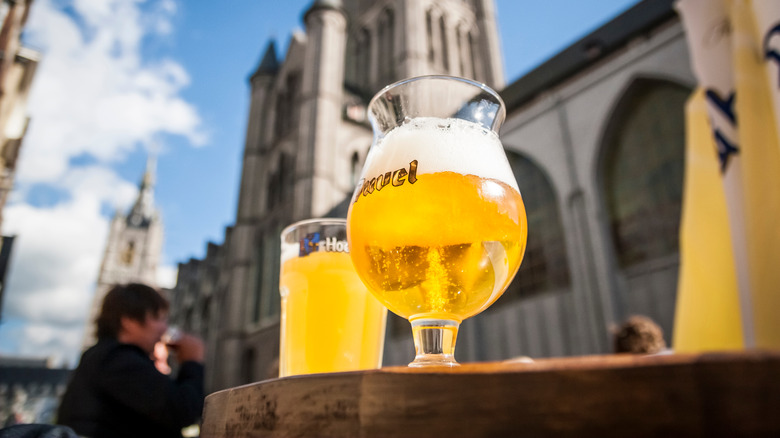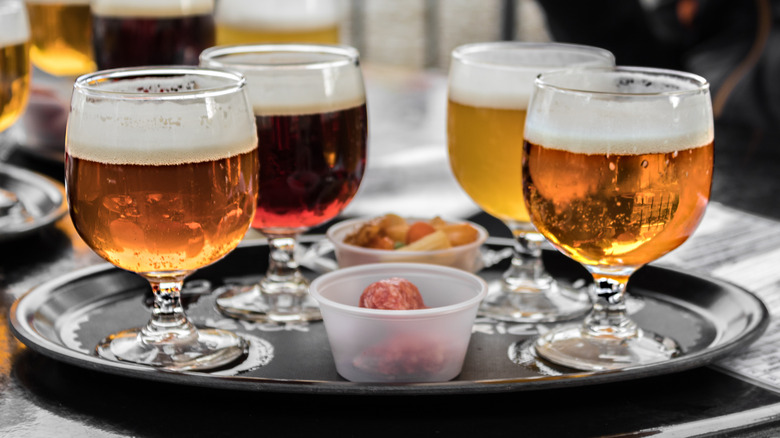What Makes Belgian Beers Ideal For Dinner Parties, According To A Cicerone
Next time you get an invite to a friend's place for dinner, you can skip the standard bottle of wine and try grabbing a few Belgian beers instead. Despite being smaller than even some of the smallest U.S. states, the Western European country is arguably the greatest beer brewing country in the world, producing a massive number of local styles that are unique and beloved by beer drinkers. Part of this comes from the country's particular brewing history, which grew partially out of a tradition of small beer breweries in local abbeys and Trappist monasteries but also encompasses local farmers, and Belgium's position as a borderland connecting the brewing cultures of Germany, France, and Britain.
It all adds up to an exciting and overwhelming amount of choices. So, Tasting Table reached out to Lindsay Jo Whirley, a certified cicerone and the assistant director of culinary operations at Newfields in Indiana, to tell us what makes Belgian beers so great for parties.
LJ told us, "Belgium takes an artistic approach to brewing, and breweries pride themselves on the uniqueness of their beers rather than ever conforming to a specific style." With flavors ranging from fruity and tart sours beers like lambics to bready witbiers, she explained, "One main reason for their place in the top for food pairings is their malt-over-hop forwardness and their unique yeast strains used," which forgo the hop emphasis of many brewers for "a much more complex aroma and flavor profile overall."
Belgian brewers utilize a variety of yeasts and brewing methods to produce highly complex beers
There are a surprising number of Belgian beer types, including respected craft styles like dubbels, tripels, and saisons, but even that actually underestimates the diversity at play. LJ says, "Different Belgian beers, though, while sharing similarities in ingredients, have their own distinctive elements exclusive to their own brands and identities." Much like your favorite style of red wine can taste very different coming from California or France (and even different vineyards in the same region), the different styles of Belgian beer are merely a rough guideline, and two beers of the same style can run across notes that are tart and fruity in one, or creamy and peppery in another.
That bottle-to-bottle variation is why, even outside their home country, Belgian beers — and the city of Leuven — have a devoted following among beer lovers, and it's what makes them so much fun for parties and dinners. You, of course, can find almost any flavor profile to pair with the food or snacks, but the actual experience of cracking open a bottle and sipping is an act of discovery each time, which can surprise people and really get them talking. If you are looking to impress people and give them an option they haven't considered, there aren't many more unique beverages in the world than Belgian beers.

